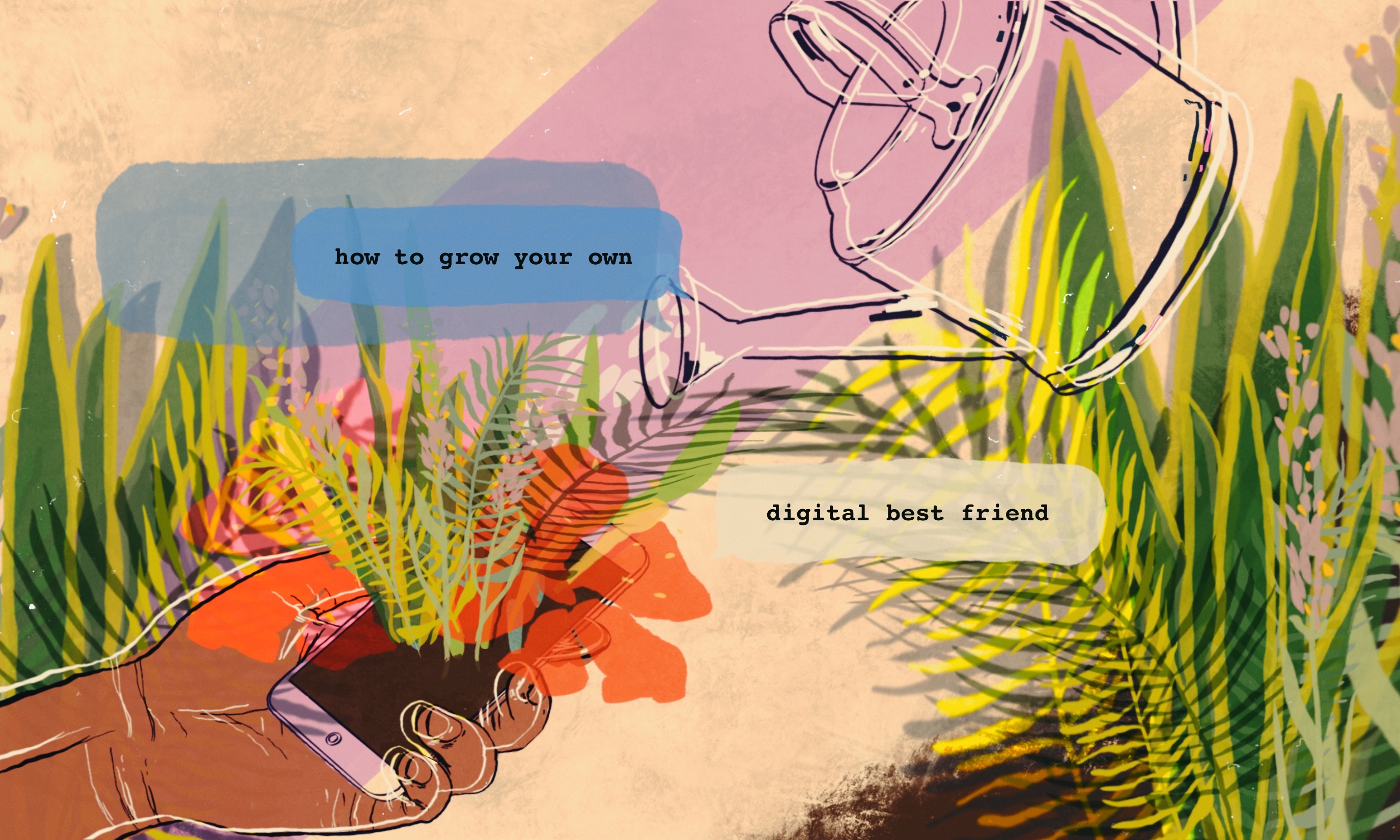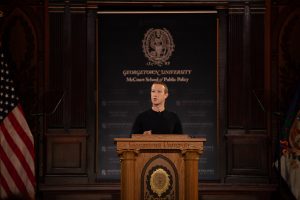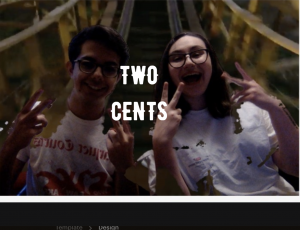Twenty-seven months after we first spoke, I finally met my best friend—in person.
When we finally did, it was under the guise of a college tour at Harvard where he was a sophomore. I scheduled a weekend visit during senior year of high school, planning to crash in his dorm. Some risk was involved: Digital personas are not always faithful to reality. Text messages and video conferencing rarely replicate the rhythm of moments in physical space—I knew as much as I boarded the cheapest red-eye flight I could find from Chicago to Boston, with a nervous anxiety pulsing on my chest. Would he like the clumsy, awkward, and at times too-serious version of me that existed off-screen? Without the delay in delivery, would I be as funny—as sharp—as instantly vulnerable?
The months preceding are a completely digital history, full of dad jokes, audio messages, and shared playlists. The genesis of it all occurred in the Facebook comment section: Ajay and I were in the same high school political debate club, and some snarky comment I made as a precocious freshman caught his eye, though he was in Houston and I in suburban Chicago. Though he was two years older and so far away, we somehow started talking. Quickly, he became a central fixture of my digital social life—I recall very few days that year without blue text message exchanges with him. I had been having trouble feeling genuinely connected to my high school class, and the chats I shared with him felt real and thoughtful in a way I failed to find elsewhere.
It felt strange to open up to someone a thousand miles away. And I was so young at the start of our friendship: Looking back, it’s impossible to not cringe at the (literally) sophomoric person I was—my earliest messages are spunky, cutesy, and naïve. And yet our relationship thrummed colorfully because I was unwaveringly enthusiastic about initiating. Daily, I would start new conversations about internal organizational politics, or standardized testing anxiety, or the emergent chance (and reality) of a Trump presidency. With time, our conversations grew denser and more meaningful. By the time Ajay shipped off to Harvard for his freshman year, 15 months after our first Messenger exchange, I considered him nothing short of a best friend.
Our conversations also grew to include the mundane. Web friendships may mean hiding the boring rhythm of life behind more spectacular things; unintentionally, digital relationships can easily turn into texted highlight reels. Often, this subtractive form of communication makes things feel artificial. Yet Ajay and I tried to embrace talking about life’s simplest things: dinners eaten, errands run, jogs around the block taken. Sweet stories about his girlfriend and honeyed ones about the color of the sky. When your friend is a world away, a fair bit of universe creation needs to happen: For complete cinematographic composition, minute details are as critical as dominant plot arcs. To recap the small stuff was to quietly assert a fierce sense of investment in each other’s lives—to prove each other boringly but wonderfully human.
This is not to say the heavy stuff didn’t matter—quite the contrary. Ajay and I have only lasted this long because we are unafraid to talk about the heady things. We often traffic in deeply philosophical and personal questions; we debate existentialism and career fears and abolitionism. We swap confessions and secrets and wonder if it’s all going to be okay in the end.
Unerasable is the “messiness” that characterizes healthy in-person relationships: While text relationships are prone to feeling sanitized, ours has never been particularly afraid of delivering raw emotion. Scrolling through backlogs of messages, I find dozens upon dozens of conversations where the words drip with the same anger, terror, confusion, sadness, ecstasy, and joy of all friendships. Indeed, Ajay has walked me through crisis after crisis. On many of my lowest nights in the last four years, I have found myself on my laptop spilling my guts to him, letting him gently talk me off the brink.
Emoting on a digital interface is complicated—one needs a good deal of nuance in syntax, punctuation, and delivery to correctly communicate tone. Not to mention the heightened vulnerability of divulging your thoughts over text—when trust and privacy are easily violable—that can preclude it from even taking place. Despite it, we continue to take the plunge, unblinking and resolute. The rewards—of consolation, of authenticity, of friendship— feel worth the risk, and we have done it enough to develop an unfazed trust.
When we finally met in person, it turned out my worries from the plane ride were relatively moot. True to my high school self, I was a stuttering, blushing mess when he picked me up at Logan airport. And some things did differ—we had to quickly figure out boundaries for physical intimacy (I am a hugger; he, less so); the energy of conversation felt calmer and more balanced; I hesitated, at first, to ask questions with the same degree of unabashed confidence I exuded online. But any awkward inertia quickly neutralized as we leaned into the trust we had built over two years.
The hours passed by dreamily. He manually blew up an air mattress for me when he discovered the pump was missing. At midnight, he pulled me around campus aimlessly as we shared a set of earbuds, listening to Noname’s Room 25 together as it debuted. Over the next couple of days, we had Belgian waffles for breakfast and window-shopped at the Curious George store. We sat on park benches and watched the rowing team have morning practice as we traded thoughts on the upcoming midterm elections. It all felt natural and rhythmic and correct; we took to each other so easily I swore we’d met in a past life. On my way back towards the airport, I shed some quiet tears on the T station platform, unsure if we’d ever see each other again.
Nowadays, Ajay and I don’t talk nearly as frequently as we did when I was still in high school; college is greedy with attention, and talking every single day is hard. But it doesn’t seem to matter: Every time we pick up the phone or the keyboard, the magic glitters easily. That’s because the groundwork has been laid—the authenticity of our interactions in our relationship’s generative months set the groundwork for years to come. Two years since our first meeting, I am prone to texting him “i love you” in the dead of night, an insomniac’s lifeline for connection. Nine times out of ten it comes back shortly after: “love you too, buddy.” Then, we share stories of our dreams and our fears; we celebrate and mourn and theorize.
The recipe for good digital friendship is not unique to Ajay and I. Outside of him, I’ve slowly built an ever-expanding net of largely digital friends—there is Adam, and Paola, and Evan, and now nearly all of my relationships due to COVID-19. The dominant ingredients for meaningful digital connection are all the same: fearless initiation, vulnerable substance, tolerance of the mundane, a bit of humor, and simple willingness. With careful adjustment, I’ve sewn tapestry after tapestry of healthy digital relationships, and it works (almost) every time.
The efficacy of this template convinces me that Ajay and I will survive the protracted quarantine and the miles between us. I am even confident we will see each other again. Soon. Until then, I will continue opening my heart onto a blue text message bubble, knowing the love we share is enough to evaporate distance. When I told him I was writing this piece, he was adamant: “This better not be a love letter.” Too bad. After all, it’s the thousands of little love letters we’ve sent each other—the greetings, the vulnerabilities, the lamentations, the good mornings and goodnights—that have made us so strong. This is just one more.







